This is a story about two men called Victor Sutherland, both of whom have dedicated decades of service to the Royal National Lifeboat Institution.
But it’s also a tale of fathers and sons, brothers and sisters, nephews and nieces and different generations joining forces in Fraserburgh to act as crew members, mechanics, charity fundraisers… all pulling together in a common cause to protect those in the waters around the Broch and, if required, save those in peril on the sea.
The Sutherlands have been doing this often dangerous work since the 1970s and will be among those celebrating Monday’s 200th anniversary of the RNLI; a charity which operates 238 lifeboat stations – of which 46 are in Scotland – and has seasonal lifeguards on more than 240 beaches around the UK and Ireland.
They go out in the worst of weather
Yet the seeds for their long commitment were sown back in the 1960s when Victor Snr and his twin brother, Albert, were themselves rescued, while fishing in Caithness.
It drove home to them the value of the myriad volunteers who might have pagers and mobile phones in the 21st Century rather than be forced to rely on analogue landlines and flares, but whose raison d’etre remains the same and who are on call 24/7, for 365 days of the year. That’s a major commitment and requires training, technical expertise and a nerveless temperament in often appalling weather conditions.
Yet, as Victor Snr, who is now 77, said with a steely glint in his eye: “We’re here to help people, just as others helped my family when it was required.”
His involvement goes back more than 60 years, but it was a seminal experience which instilled in him a passionate devotion to the institution.
He recalled: “In the early 1960s, my father, my brother and myself required the assistance of the Thurso lifeboat. We had lost our steering in a severe gale of northerly wind about 12 miles west of Scrabster and it was a very serious situation.
“If it was not for the lifeboat getting a tow rope across to us, we would have been driven ashore. And this inspired us to give something back to the RNLI and the community.”
It was exciting to watch it happening
Victor Jr was knee high to a grasshopper when he noticed the attention which was being paid to the restoration of the Fraserburgh Lifeboat, following the tragic deaths of five crewmen in a dreadful accident in 1970 – one of several grievous chapters in the community’s history where volunteers ventured into the North Sea in an attempt to help others and never came home to their loved ones.
Now 52 and the coxswain mechanic, he was just an infant when the Broch welcomed back a new RNLI boat – and it was something which he has never forgotten.
He said: “When the station reopened in 1978, I was six years old, and the newly formed crew had begun training on the Solent class Lifeboat Royal British Legion Jubilee.
“I can recall coming down to the station with my dad who had signed up as crew along with his brothers, James and Albert, while my dad’s cousin, John Sutherland, had been appointed coxswain and John’s sons had signed up as well for the crew.
“There was also my uncle David Birnie on my mum’s side and uncle Charlie – my dad’s brother-in-law – and cousins Billy and Zander, so there was a real buzz within the family on all sides and, along with all the other volunteer crew who had signed up, it was such a great environment with all these burly larger-than-life characters.
“With my dad being a fisherman, we were used to him being away for days at a time, so when he was home, and he was called to the lifeboat, I didn’t give it much thought, but I do remember the buzz/panic/urgency when the call-out came through to the house.
“In 1979, if there was a shout, the Honorary Secretary would get a call from the Coastguard, he would then phone the coxswain and then the mechanic and the calls would filter down through the crew, the head launcher would make for the station.
“Once there, he would fire two maroons (rockets) and this would let any remaining crew as well as the whole town know the lifeboat was launching.
“My first memory of our dad heading out was when the cargo vessel Antonio ran aground in June 1979. I know it was a weekend because dad was home from the fishing, and I remember the house phone going, my mum answering it and shouting to my dad that it was the Lifeboat and him heading straight off.
“This was the first shout for the newly-operational station and there was a terrific buzz around the boathouse when the RBL Jubilee was rehoused and everyone was stepping ashore after the rescue. I was only seven, but I remember the feeling of pride that everyone had and I made up my mind that I would be in the crew when I was older.”
That was a positive afternoon in the town. But sadly, there have been other days where people have perished and a veil of tristesse has enveloped the Broch.
On January 21, 1970, the Duchess of Kent lifeboat was overturned by a freak wave in gale-force conditions while escorting a Danish fishing vessel to safety.
The vessel had been launched in treacherous conditions to come to the aid of the Danish fishing vessel Opal, which had four people on board, had sprung a leak and was described simply as being “in a sinking condition”.
The whole town was in mourning
Coxswain John Stephen was in command of a six-man RNLI crew who were on the water by 7.34am. By the time they arrived, a Russian vessel had come to the temporary aid of the Opal and started to tow it in the direction of the shore.
It fell to the Duchess of Kent to escort both vessels back to port, but disaster struck when a huge wave caused the lifeboat to capsize. Five of the six crew members died.
The sole survivor was John Buchan, who had been flung clear as the boat capsized. He was plucked from the water by the Russian ship, but a cloud hung over Fraserburgh in the aftermath and a joint funeral for the lost crew was attended by 13,000 people.
The legendary football manager Jock Stein read about the catastrophe and was determined to honour the victims. Three months later, he brought a Celtic side littered with stars, including Billy McNeill, Jimmy Johnstone, Bobby Lennox and Bobby Murdoch to the north-east in a bid to help the families of those who had been killed.
Despite the freezing, gale-force winds that welcomed them that April day, 6,500 people attended the game at Bellslea to raise £2,000 for the disaster fund.
But the likes of Victor Sutherland Jnr can pinpoint that and other incidents where the inherent risks in going to sea for those who sign up to the RNLI were brutally exposed.
The dates are imprinted on his mind: April 28, 1919, where two crew members lost their lives; February 9, 1953 when six men died; and the five who passed in 1970.
He told me: “You are never sure what to expect on a call out, they are all different and they can be physically challenging- especially in heavy weather.
“Even just trying to keep your feet on deck or bracing yourself when seated in the wheel house takes a lot out of you. The sea is only one part of the challenge, the mental wellbeing after the shout is sometimes the hardest thing.
“We have had a lot of shouts throughout the years where it has been someone locally, someone the crew have known, that we have been called out to help and, sadly, some of those persons have never been found.
“Knowing that we will probably meet the family left behind at some point, we always hope they realise that we did our utmost to bring their loved ones home.”
These Sutherlands are a robust, resilient clan. Year after year, whatever the circumstances, they are at the centre of the institution’s activities and performing unsung heroics, and if the pager sends them an urgent message on Christmas Day, their attitude is that the turkeys and trimmings will have to wait for later.
No wonder they have received a glowing commendation for their labours from Jill Hepburn, Head of Region for the RNLI in Scotland.
We couldn’t save lives without them
She told the Press and Journal: “We’re incredibly grateful to the many generations of families who have volunteered their time and commitment, to ensure the charity’s lifesaving service has continued for 200 years.
“The Sutherland family in Fraserburgh are a prime example of the families who have shown that commitment to the RNLI across the generations, with Victor Snr and Albert Sutherland first joining the crew when the lifeboat station reopened in 1978.
“Since then, the family have gone on to support the RNLI in Fraserburgh in many different volunteer roles, from crew to operations team and fundraising. Without volunteers like the Sutherland family, we simply wouldn’t be able to continue to save lives at sea as we have done for the last 200 years.”
And there’s no sign of the story ending here.
As Victor Jnr said: “I’m very proud of the Sutherlands’ connection to the institution. I wouldn’t like to guess how many years in total we’ve been involved with the station, but it must be as much, if not more, than how long the RNLI has been in existence.
“I am so proud of the fact that my brother David is a [second] coxswain, his son Declan is a [second] mechanic and we are sailing together on the Broch Lifeboat.
Carrying on the family tradition
“Looking to the future, my eldest daughter Eilidh is in the process of signing up as crew, with my other two daughters looking to follow in her footsteps as well.
“So, as a family and, more importantly, as a crew, we are all in this together and, as we celebrate 200 years of the RNLI, everyone will agree it is an honour and a privilege.”
These redoubtable individuals have their feet firmly on the ground and would never regard themselves as heroes. But they are. Victors by name, setting a winning example.
Charity row
There’s no rest for the charity-minded. On Saturday, March 9, at noon, the Fraserburgh crew is launching a 200-nautical-mile machine row, looking to complete the challenge over a 24-hour period or keep going until it is completed.
Victor Sutherland Jnr said: “It will take place at the lifeboat station, where we will have four rowing machines being used and a couple of the crew who are working offshore will be taking part with rowing machines as well.
“The crew will take it in turns at the station over the 24 hours to hopefully cover the distance or go beyond it. We are looking to raise a few pounds along the way and have set up a JustGiving page, so that our many followers can support our volunteers.”
You can visit the page here.
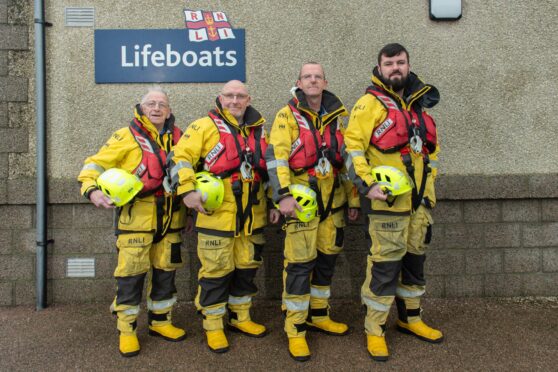
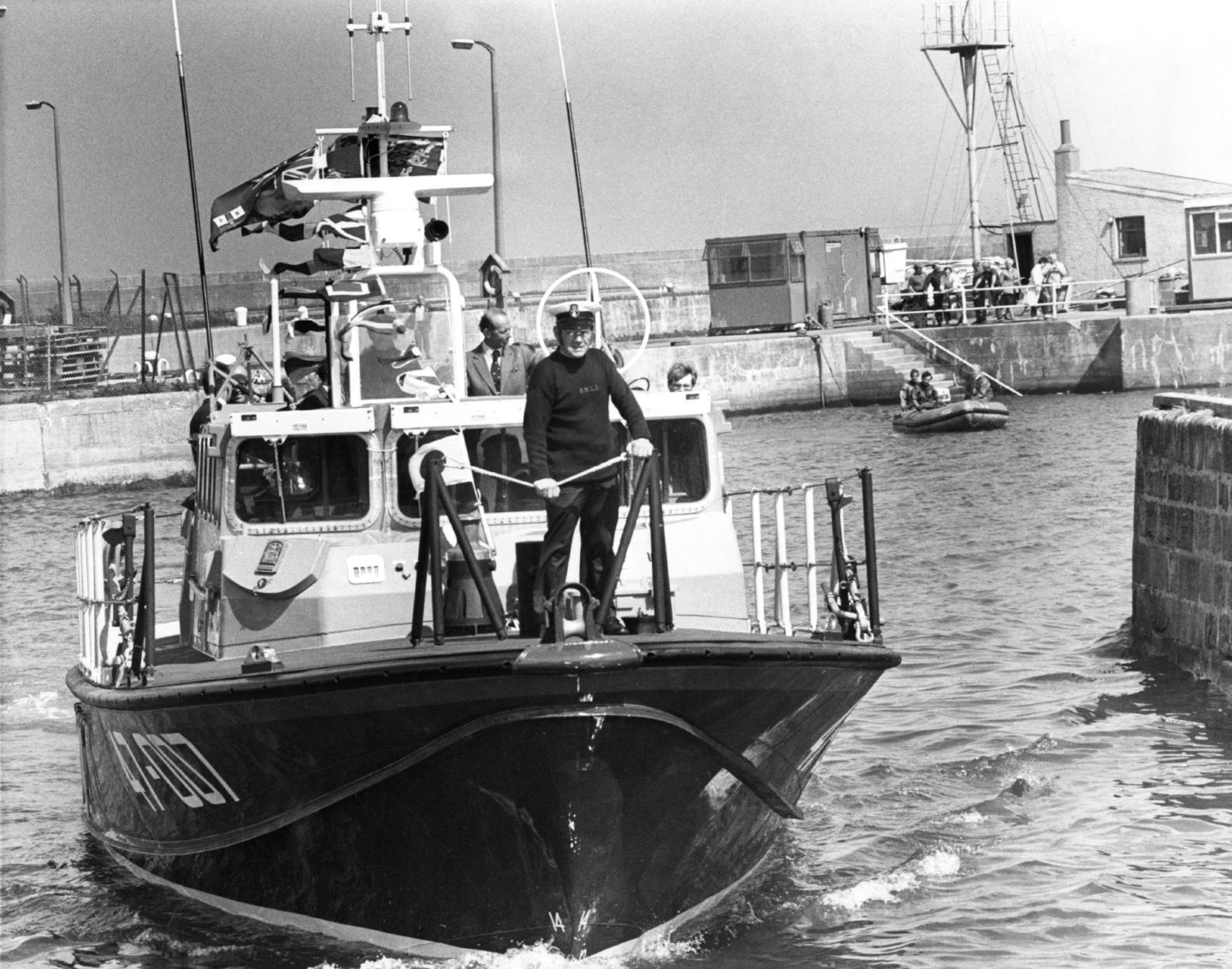
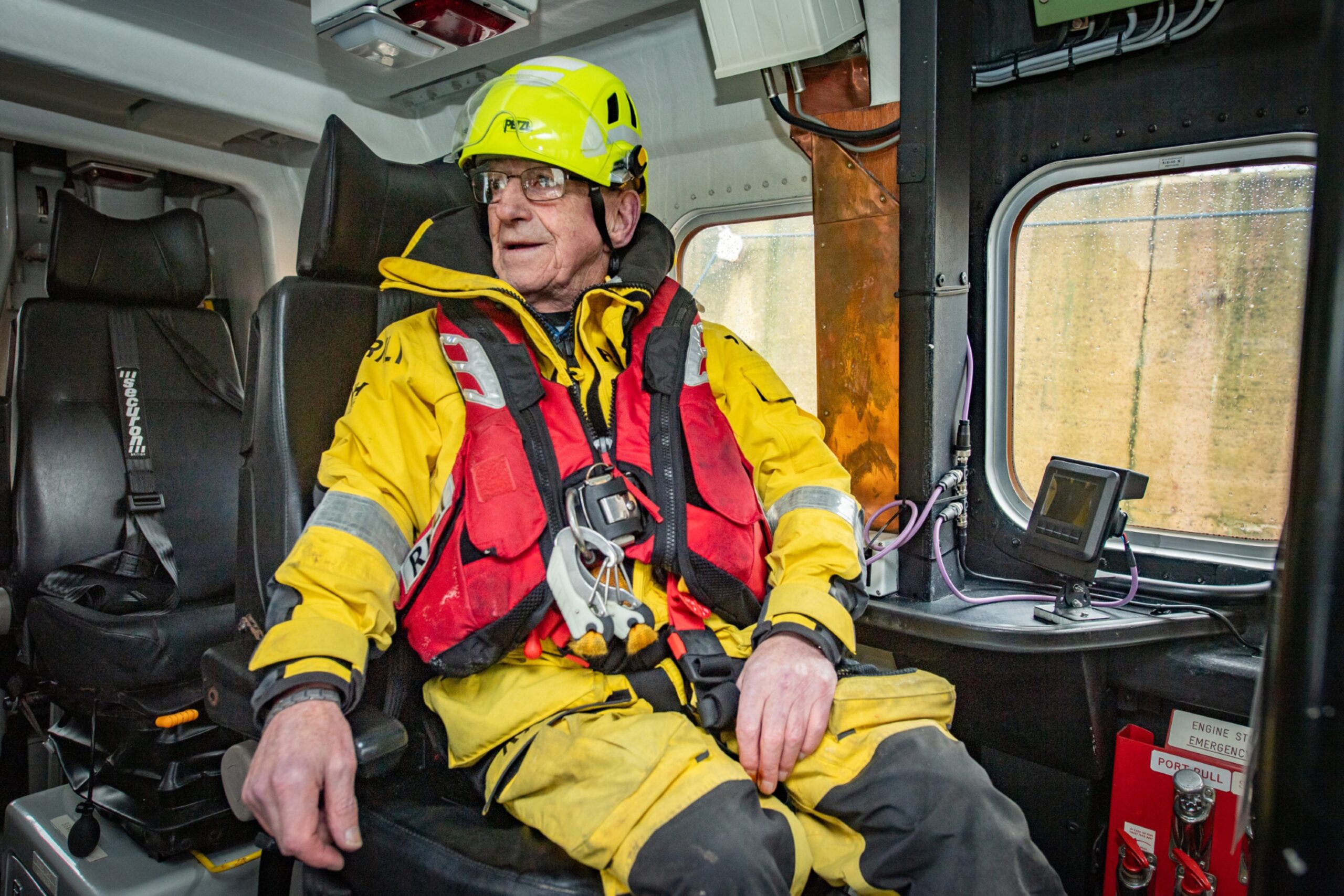
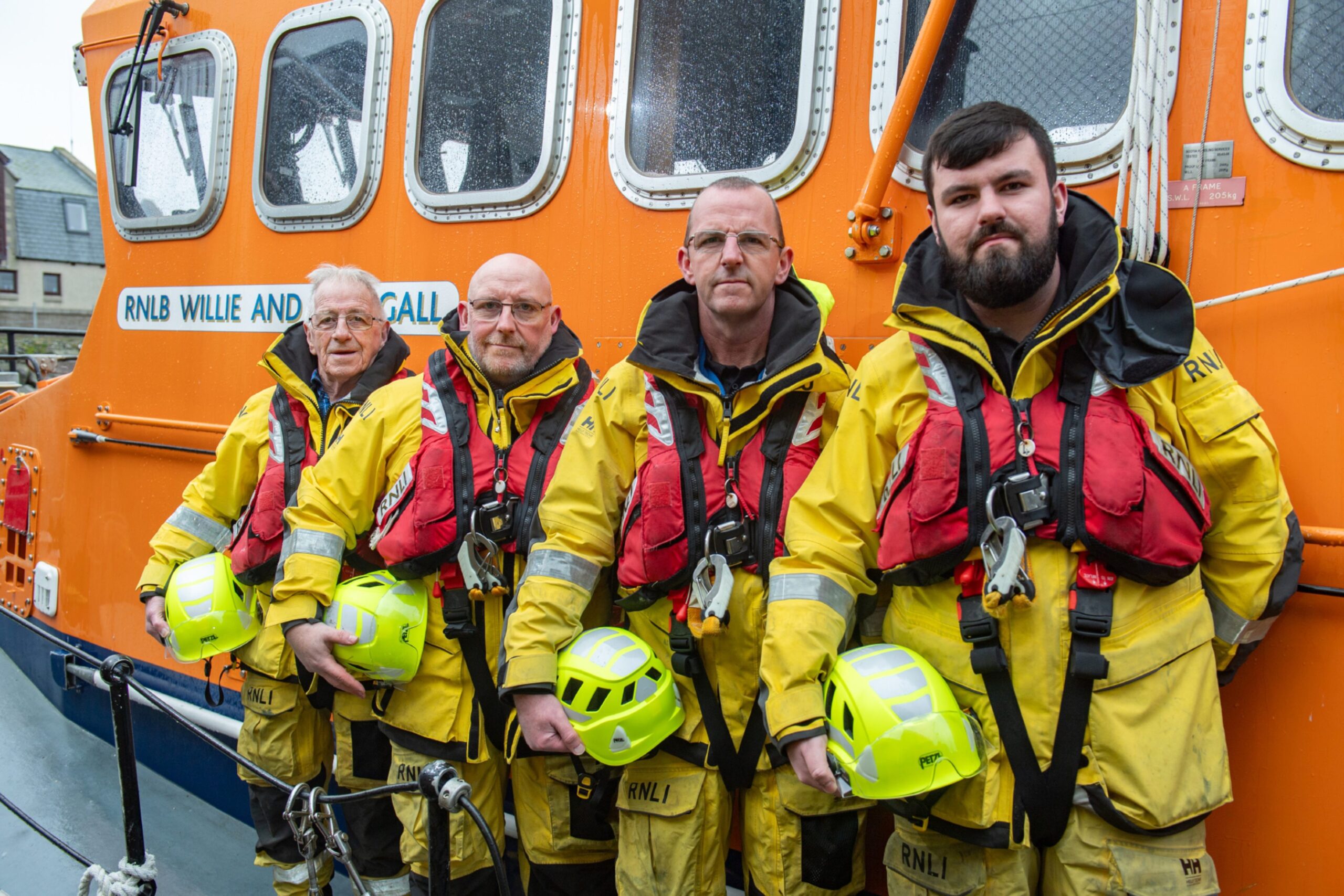
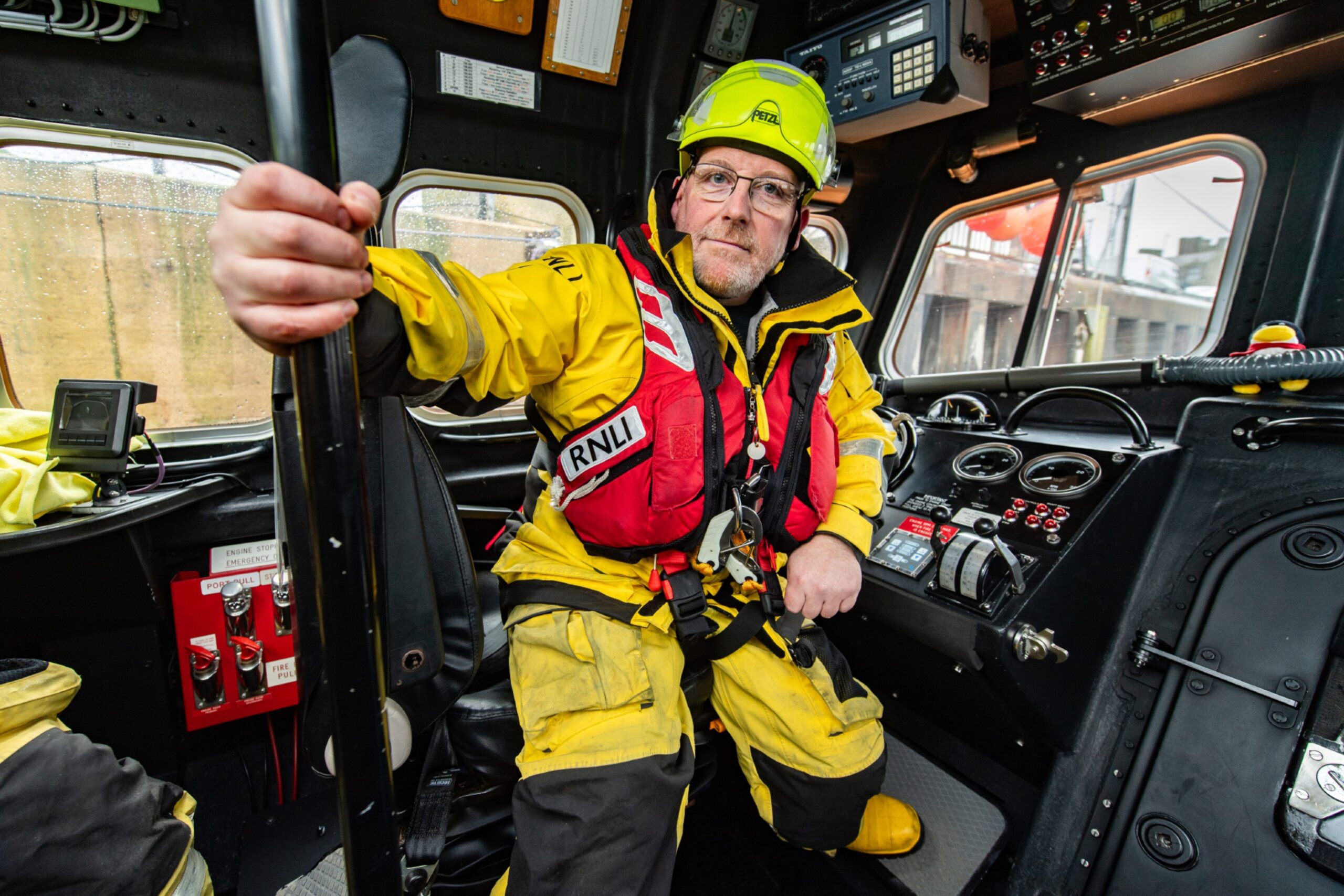
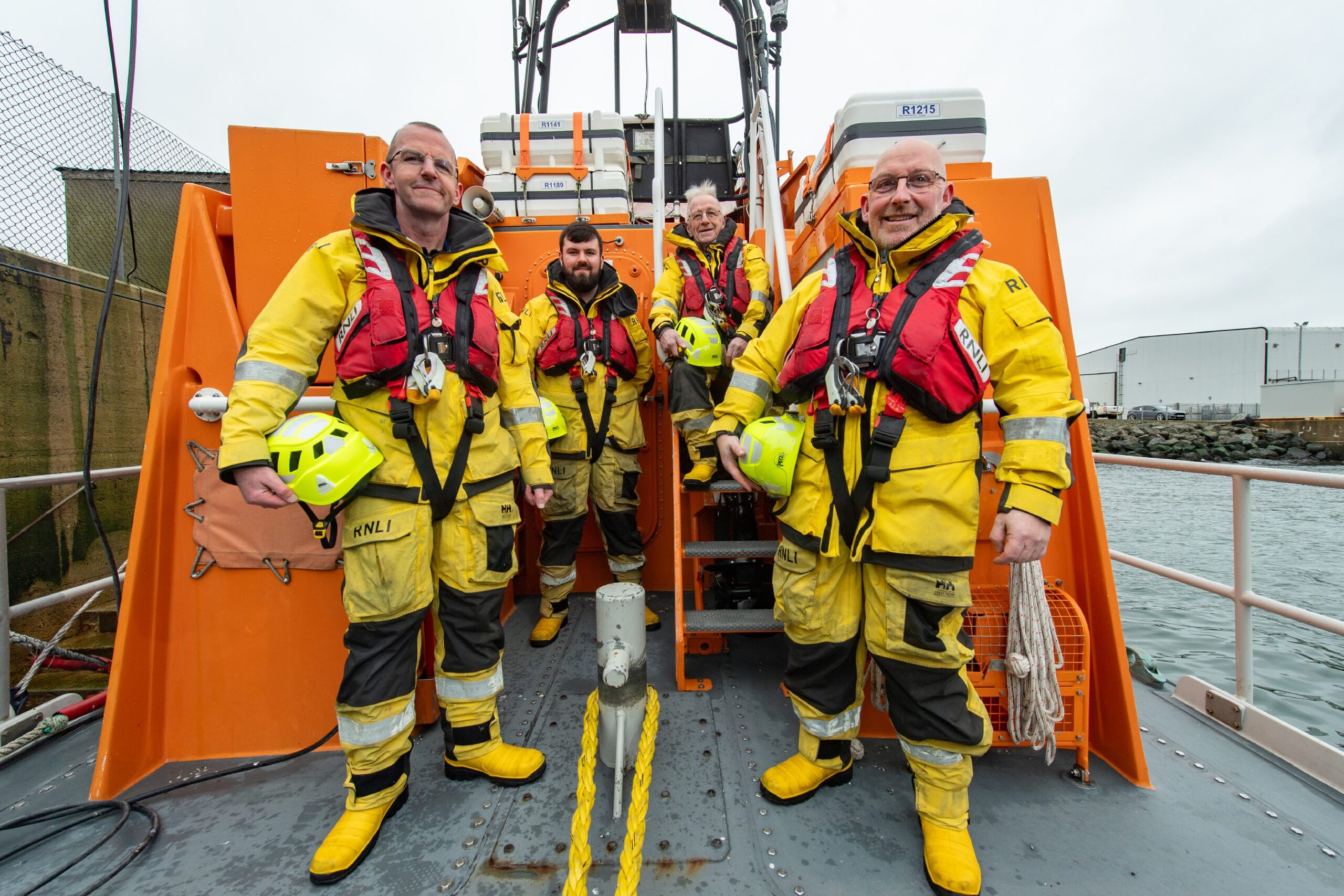
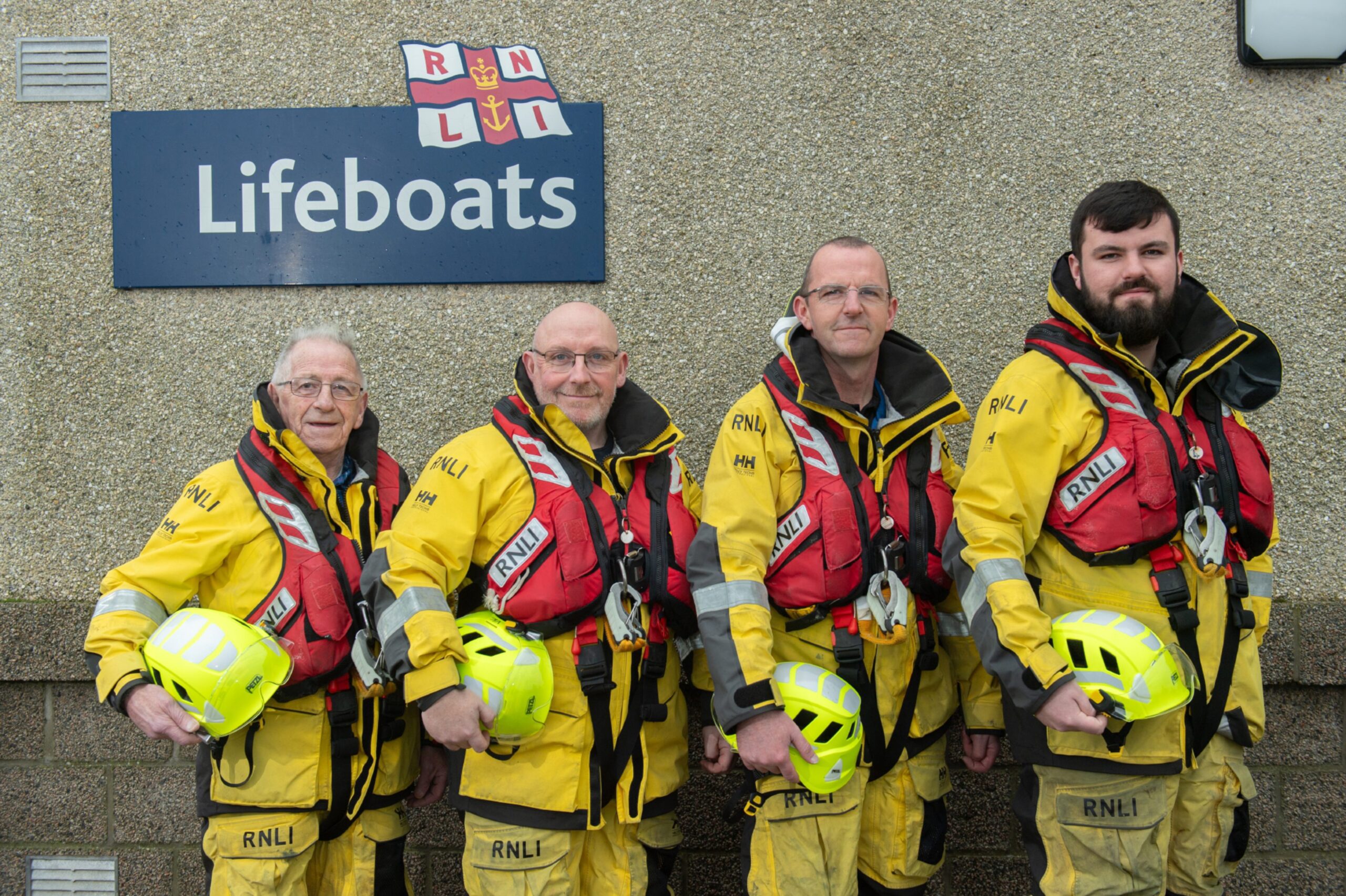
Conversation